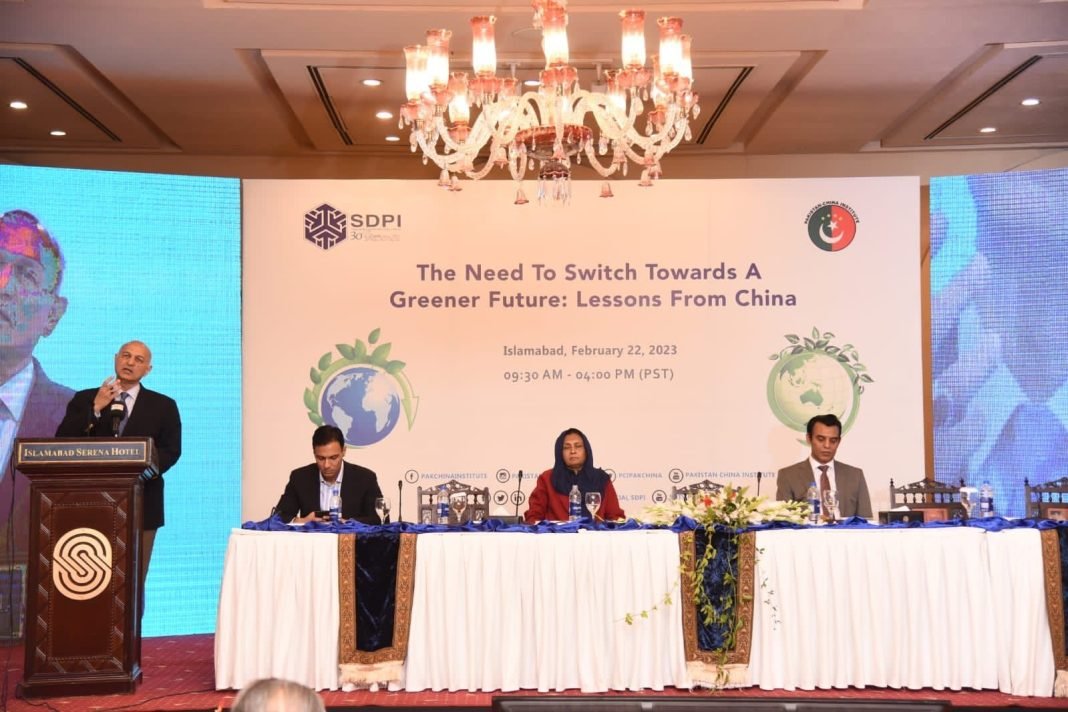Islamabad, 22 February 2023 (TDI): A conference titled “The Need for a Greener Future: Lessons from China” was hosted by the Pakistan- China Institute and the Sustainable Development Policy Institute (SDPI).
Parliamentarians, industry experts, and think tank representatives delivered insightful speeches at the conference. Senator Rukhsana Zuberi presided over the sessions, and Senator Mushahid Hussain Sayed delivered the keynote address.
According to Senator Mushahid Hussain Sayed, “green is the defining element of China’s development agenda.” China is now emerging as a leader in green development.
While Senator Rukhsana Zuberi emphasized the importance of conducting energy audits to identify wasteful practices and increase energy efficiency.
In this vein, According to Dr. Abid Q. Suleri, Executive Director of SDPI, Pakistan must remember China’s success stories in addressing environmental and climate issues.
Additionally, Dr. Zhao Baige, Vice Chair of the 12th NPC Foreign Affairs Committee, Chair of the Advisory Committee of RDI, informed that China announced its policy for carbon neutrality in 2016.
Also read: China-Arab Summit strengthens Sino-Arab Friendship
Likewise, it has been committed to the achievement of the policy guidelines which is the reason behind China’s emergence as a global leader in renewables and emission reduction.
Furthermore, Dr. Sajid Amin Javed, Deputy Executive Director of SDPI, stated that green financing in Pakistan is still a residual policy and not a mainstream economic policy.
Hence, it must be made the primary economic and financing policy first and foremost. Besides that, Dr. Hassan Daud, Senior Advisor SDPI reiterated that Pakistan was the first to receive cash from China under the BRI’s energy projects.
These projects were aimed at the wind and solar energy generation.
While according to Christoph Nedopil, all BRI development projects must be green by 2030 in accordance with green development guidelines.
Lastly, Farid Ahmed the Group Chief, of Corporate and Investment, Bank-of-Punjab enunciated that Pakistan has 110,000 MW of potential in hydel, wind, and solar energy, and the government has announced that the renewable energy share will increase.
This was announced under the Alternative and Renewable Energy Policy 2019 under which it will increase to 20% by 2025 and 30% by 2030.
I'm a detail-oriented, problem-solving, persistent multitasker. Having a magna cum laude MSc. in Strategic Studies from National Defense University, Pakistan, I believe in peaceful discourse & dialogue and have built my interest in nontraditional security threats.
I am an experienced writer with a primary focus on public policy, environmental security, nuclear strategy, and geopolitics!








